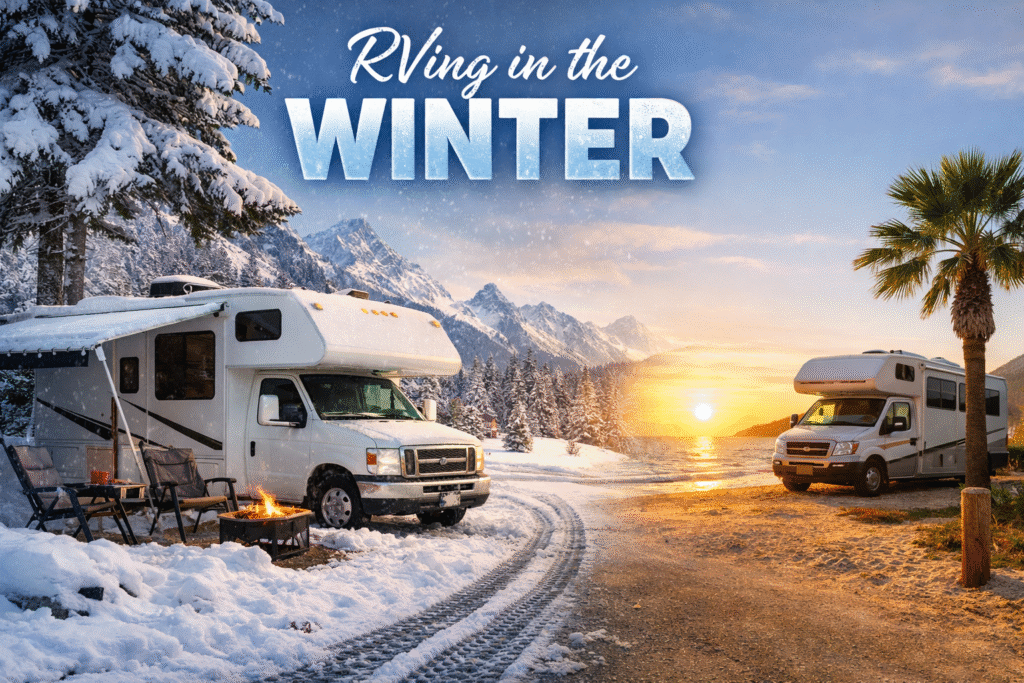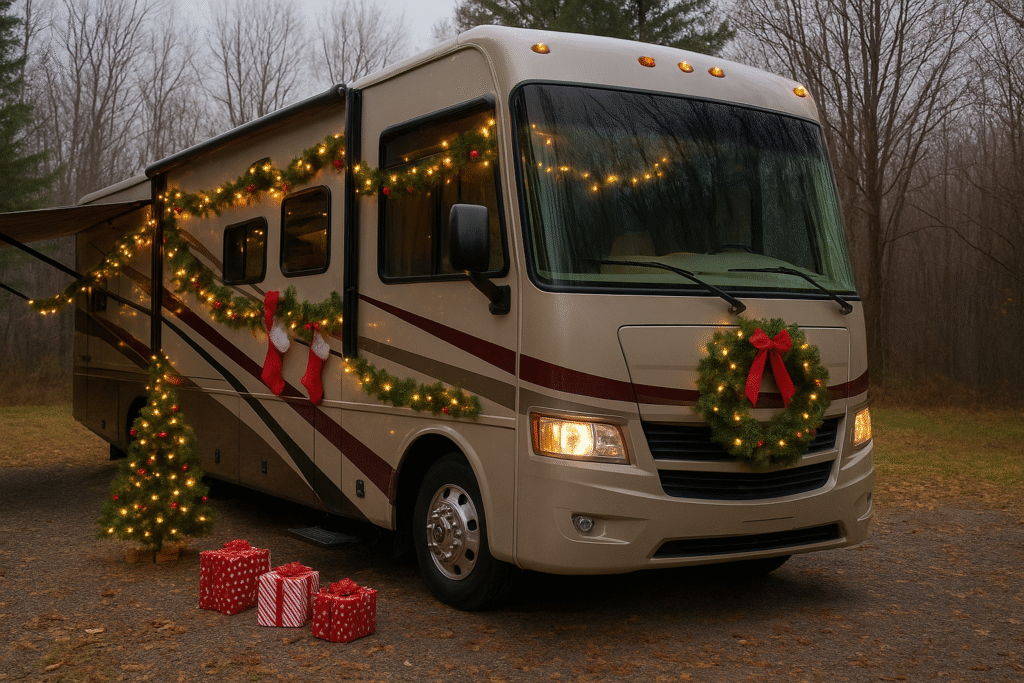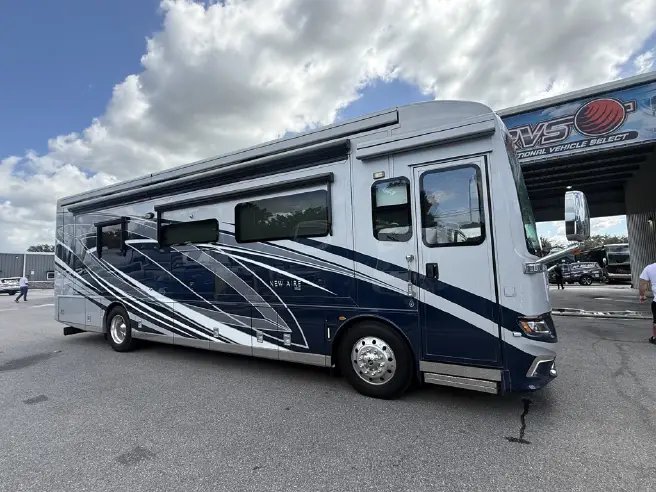Whether you’re a seasoned RVer or not, you likely know that a little rain never hurt anyone. In fact, you’ve probably lived your life knowing that you can weather most storms, even on a camping trip. There are many different ways you can prepare in advance for a winter camping trip, but sometimes the weather can catch you off guard. For example, what should you do if it snows unexpectedly while you’re camping or traveling in your rig?
Whether you’re a snow bird driving from north to south or you are venturing into colder climes, here are just a few ways you can get through a surprise winter weather event:
- Travel with a full tank of gas – It’s important to keep your fuel tank topped off when you get the first hint that there could be inclement weather. You may be stuck in a location that is not your destination and having gas at your disposal can help you weather the storm. Ensuring your other fluids are topped off as well is also smart.
- Drive smartly – Roads can quickly turn to ice or slush when winter precipitation is in play, so it’s best to take extra caution when driving on messy roads. Give yourself plenty of time to get to your destination. Plus, you should drive slowly and keep a lot of distance between your RV and other vehicles around you. If conditions become too dangerous, find a safe place where you can park and ride out the weather.
- Remove snow from your roof – Snow that is allowed to sit atop your RV’s roof for any period of time can spell trouble. Your roof is not designed to hold the heavy load that snow exerts, and if left to sit, water from melting snow can seep into nooks and crannies and begin destroying the structural integrity of your rig. Once a storm has passed, safely remove the snow from your roof.
- Keep your plumbing warm – A light dusting of snow or temperatures that dip temporarily may not be cause for concern, but don’t be fooled. Your water pipes can freeze faster than you think, so you should have a plan to keep your plumbing operational in the event of a winter storm. Turn on a space heater for targeted heating, open your cabinets and storage areas to help heat flow into your rig’s interior spaces, and allow faucets to drip to keep water flowing ever so slightly.
While it can be daunting to think about traveling in a winter storm, it shouldn’t deter you from exploring cold-weather destinations during the winter months. Have you ever been camping or traveling during a winter storm? What steps did you take to protect yourself and your rig? Let us know in the comments or contact us today!




